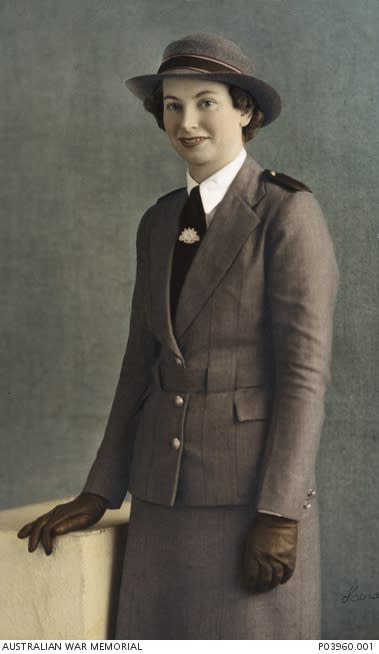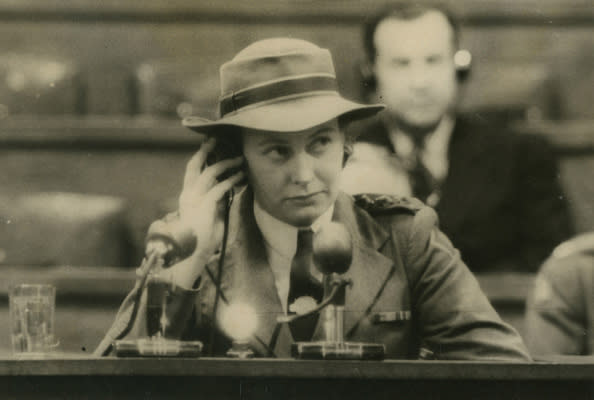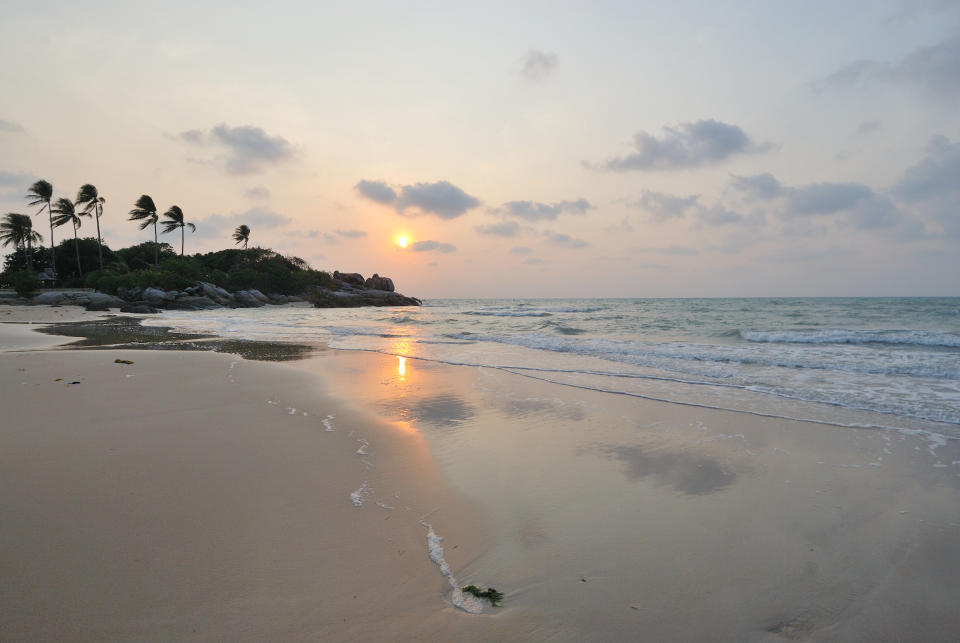Aussie WWII nurse who survived beach massacre 'tortured' by rape secret
WARNING – DISTURBING CONTENT:
In the 77 years since a group of Australian nurses were gunned down on a deserted Indonesian beach, their mass rape by the Japanese soldiers who then slaughtered them has been an ill-kept secret.
Yet, the sexual assaults which preceded their deaths can’t be found on any official war records.
A new book by military historian Lynette Silver, Angels of Mercy: Far West and Far East, brings together evidence and accounts surrounding the Bangka Island Massacre and hopes to set the record straight.
The sole female survivor of the massacre was 27-year-old Vivian ‘Bully’ Bullwinkel.

The Bangka Island massacre was committed on February 16, 1942 by Imperial Japanese soldiers who, in addition to the 22 nurses, also executed 60 Australian and British soldiers and crew members – all of whom had just survived having their ships bombed by Japanese aircraft.
Once the survivors of the sunken ships made it to Bangka Island, east of Sumatra, the Imperial troops split the men from the women and executed them.
Of the nurses, Ms Bullwinkel had been the only survivor.
Like her fellow nurses, she had been marched down to the sea and shot by machine gun fire from behind.
Then, as she lay face down in the waters filling with the blood of her friends and colleagues, Japanese soldiers had waded in and bayoneted the survivors. She managed to be overlooked by “playing dead”.

Ms Bullwinkel spent two weeks in the jungle caring for a wounded British soldier before giving herself up and spending three and a half years as a prisoner of war on Banga Island.
Tortured by secrets ‘hushed up’ by the government
Before the nurses were shot on the beach, Ms Bullwinkel claimed she along with “most” of her fellow nurses were “violated” by the soldiers.
Lynette Silver is among those who have long believed Australian authorities “hushed up” Ms Bullwinkel’s account of the sexual assaults.
“There is no doubt that this happened,” Ms Silver told Yahoo News Australia. “There is also no doubt that Vivian wanted the truth to be told.
“I surmise that death intervened before she could speak out.”
Before Ms Bullwinkel had died in 2000, she had confirmed to broadcaster Tessa Lawrence that “most of us” – meaning she and the women who had been gunned down – had been “violated” by the Japanese soldiers beforehand.
“She was tortured by these secrets and her sense of justice was offended by keeping them locked in,” Ms Lawrence wrote in Independent Australia on the 75th anniversary of the Bangka Island massacre in 2017.
“She wanted to put this in her statement before the war crimes tribunal but was ordered not to by the Australian Government.”

When the nurse had fronted the International Military Tribunal for the Far East in Tokyo in 1946, she was “gagged” from speaking about the rapes, Ms Silver said.
“She was following orders,” Ms Silver told the BBC. “In addition to the taboo, there was probably some guilt from the Australian government – senior officers knew Japanese troops had raped and murdered British nurses when the Japanese invaded Hong Kong in 1942, but were tardy in calls to evacuate the Australian nurses from Singapore.”
Perpetrators escaped punishment
According to the Australian government, the perpetrators of the massacre still remain unknown and have “escaped any punishment for their crime”.
An Australian Defence Force spokesperson told the BBC it was up to the government if a new investigation into the sexual assault claims could be launched, adding that “new historic allegations” needed to be reported by family members.

Among the evidence in Ms Silver’s book, is forensic evidence gathered by biographer Barbara Angell.
Her work involved the examination of the bullet holes and the fabric threads of Ms Bullwinkel’s uniform. Ms Angell came to the conclusion that the bodice of the nurse’s dress was open at the waist and down the front when she was shot.
Other key pieces of evidence Ms Silver brought to light in her work included an account from a Japanese solider who had told an Australian investigating officer he had heard screams on the day of the massacres, and was told that soldiers were “pleasuring themselves on the beach and it’d be the turn of platoon next”.
Ms Silver and her co-researchers hope the publication of her book will finally see the sexual assaults that were committed against the nurses recorded at the Australian War Museum and other official documentation.
As for some of the families of the nurses who were killed in 1942, Ms Silver said the publication of such a significant body of evidence had been welcomed by those she had spoken to, telling Yahoo News Australia the relatives “are pleased that the speculation is finally at an end”.
“If I didn’t tell this secret, I’d be part of the culture of silence and the government clampdown, and protecting the perpetrators,” she told the BBC.
“These nurses deserve to have their story told – that’s their justice.”
Do you have a story tip? Email: newsroomau@yahoonews.com.
You can also follow us on Facebook, download the Yahoo News app from iTunes or Google Play and stay up to date with the latest news with Yahoo’s daily newsletter. Sign up here.



